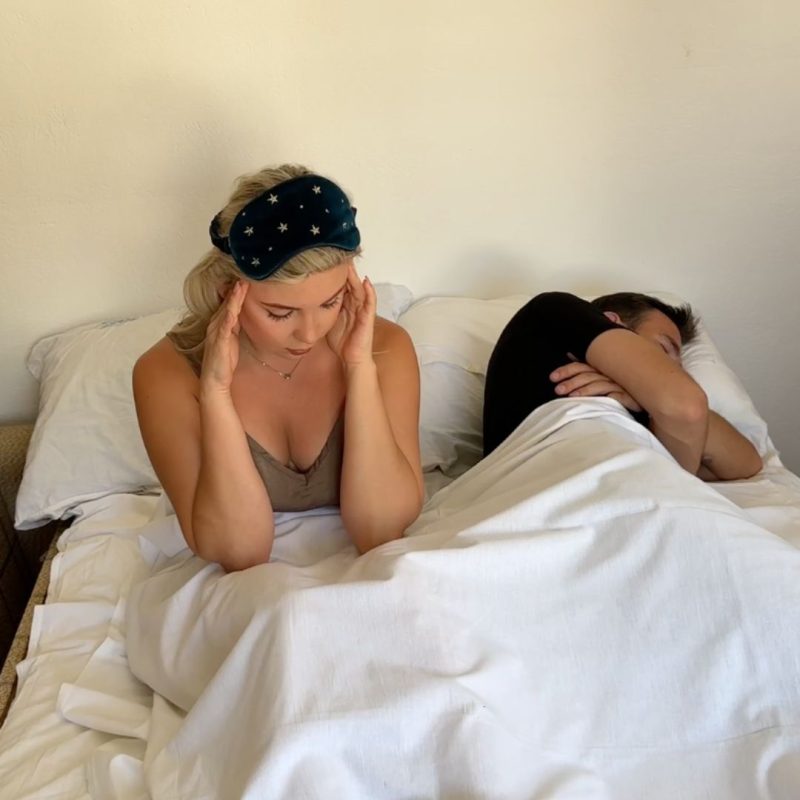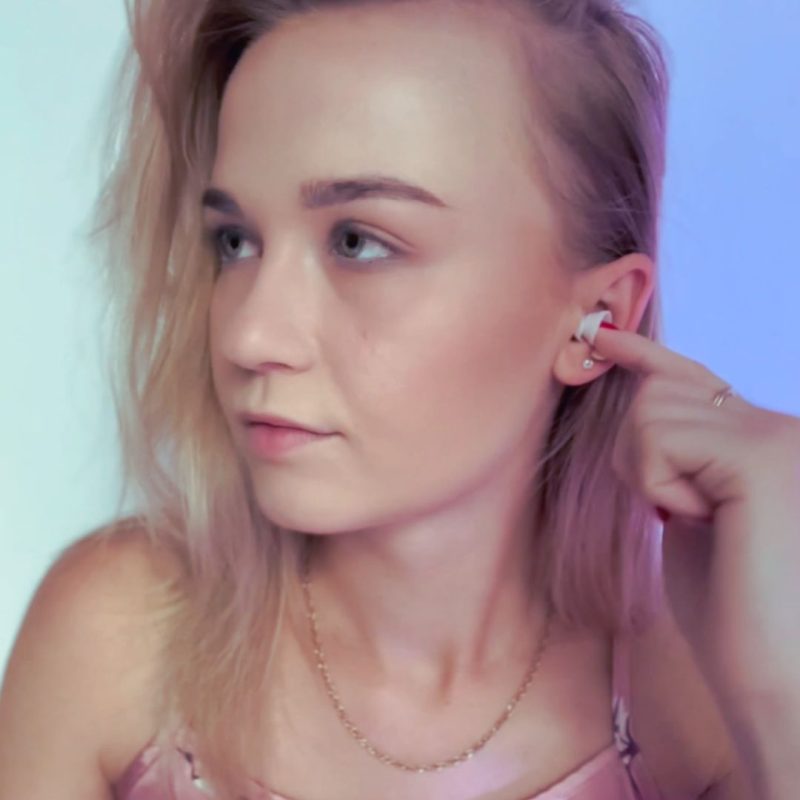Sleep, Noise, and the Mental Health Link You Can’t Ignore
By: Maya from Bollsen
Noise is often dismissed as a minor sleep nuisance. But for many people, it’s a direct trigger for noise and sleep anxiety a condition where even small sounds at night can set off mental alertness, stress, and sleep disruption. If you’ve ever felt your chest tighten when a car door slams, or if a ticking clock makes your thoughts spiral when trying to sleep, you’re not imagining it. These are signs of noise and sleep anxiety, a real and rising phenomenon.
This condition doesn’t just affect comfort. It disrupts deep sleep, increases nighttime cortisol, and over time, weakens both mental and physical health. People with trauma sensitivity, ADHD, or sensory processing challenges are especially vulnerable to nighttime sound triggers.
In our article on how to use sleep earplugs correctly, we explained how reducing sound input supports better rest. But for sensitive sleepers, it’s not just about quieter sleep. It’s about creating an emotional and environmental signal of safety.
In this guide, we’ll explore how noise interacts with the nervous system during rest, how sleep anxiety forms and worsens, and why simple tools like soft, well-fitted sleep earplugs can play a surprising role in protecting mental well-being.
How Sound Sensitivity Affects Neurodivergent Sleepers
Sound does not affect everyone the same way. For people with sensory processing differences, including those with ADHD, autism, generalized anxiety, or PTSD, nighttime noise can become a trigger rather than just a distraction.
This is not simply about being a light sleeper. It is a form of neurological sensitivity where the brain has difficulty filtering and downgrading irrelevant sounds. That distant siren, snoring partner, or hallway footstep does not fade into the background. It lingers. It pulls the nervous system into a state of alertness, even when the body is exhausted, as explained by the Sleep Foundation.
The result is broken sleep patterns, delayed onset of rest, and a sense of emotional fatigue that accumulates night after night. For some, even the anticipation of noise is enough to create tension before bedtime.
Creating what experts call a “low-stimulus sleep zone” can help reduce this pressure. Calming rituals, noise buffering, and acoustically adaptive sleep tools offer protection. In our article on deep sleep earplugs and noise reduction, we explain how the right earplug does not block sound completely. Instead, it lowers the volume of disruption just enough to help the brain stay grounded and at ease.

The Psychology of Feeling Safe at Night
Sleep is not only about physical stillness. It is about psychological permission. For the brain to fully rest, it must believe that the environment is safe, predictable, and calm. That sense of safety can be fragile, especially for people who have lived through trauma, deal with chronic anxiety, or have heightened sensory processing.
Unexpected sounds even subtle ones like the clicking of radiators or distant footsteps can trigger the amygdala, the part of the brain that controls fear responses. This means your nervous system might stay on high alert, even if your bedroom is technically quiet.
This experience is common among those who sleep beside a partner who snores or tosses and turns. In our guide on what works when you sleep next to a snorer, we describe how even the emotional unpredictability of sleep disruption can prevent rest. For many, the issue is not just noise itself. It is the feeling of having no control over when or how that noise might appear.
Creating a safe sleep space involves more than just silence. It requires control, predictability, and comfort. For some, this may involve white noise or light-blocking curtains. For others, soft and reliable earplugs become a form of nighttime boundary. They reduce the emotional triggers linked to noise and sleep anxiety, offering both physical quiet and psychological reassurance.

Small Tools That Create Big Calm: The Role of Sleep Earplugs
In a world that feels increasingly noisy, finding calm is more than a luxury it is a necessity. For those who deal with noise and sleep anxiety, even going to bed can feel like entering a battlefield of unpredictable sounds. But not every solution needs to be complex. Sometimes, a simple tool like the right pair of earplugs can become a reliable part of your mental health routine.
While earplugs are usually associated with blocking sound, their deeper value lies in what they symbolically offer: control, predictability, and sensory relief. For people managing trauma, overstimulation, or general stress, earplugs for mental health are more than accessories. They serve as personal boundaries a signal to the brain that the external world can wait until morning.
In our article on types of earplugs for sleeping, we explore the differences between foam, silicone, and smart-fit options. For many sensitive sleepers, finding the right material and shape is not just about comfort. It is about choosing the tool that helps quiet the mind as well as the room.
When used consistently, earplugs can reduce sleep interruptions, help retrain the nervous system, and improve long-term emotional resilience. This makes them one of the smallest but most powerful tools for people looking to manage noise and sleep anxiety in a gentle and accessible way.
A Quieter Mind Begins With a Quieter Night
Sleep is one of the most vulnerable parts of our daily cycle. It asks us to let go, to trust our environment, and to give our mind the space to reset. For many people especially those dealing with noise and sleep anxiety this is not an easy request. Sound becomes a signal of danger rather than background, and the act of rest becomes layered with tension.
This is why small sensory boundaries matter. Whether it is a soft light, a consistent bedtime, or the reliable quiet offered by earplugs for mental health, what we do to protect our rest shapes how we experience our days.
Understanding the connection between sound and stress is not just helpful. It is necessary. And building a sleep space that respects your nervous system with quiet, comfort, and care is one of the kindest things you can do for yourself.

FAQ: Noise, Sleep, and Mental Health
Yes. Many people experience heightened stress or alertness in response to sound during the night. This response is often connected to underlying anxiety, trauma, or sensory sensitivity. Noise and sleep anxiety is increasingly recognized in sleep psychology as a legitimate barrier to rest.
Earplugs are not a cure for anxiety or mental health disorders, but they can be an effective sensory aid. Earplugs for mental health are especially helpful for people who are sensitive to nighttime noise. They help create a controlled sleep environment that supports calm and reduces overstimulation.
